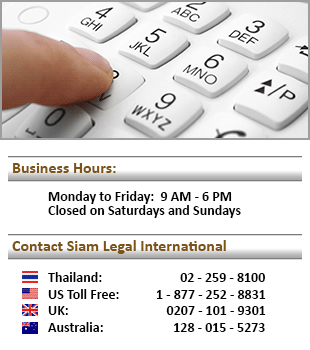Child Support in Thailand. Child support is an important component of family law that aims at guaranteeing children’s well-being and financial security upon the breakdown of parental relationships. In Thailand, child support laws are controlled by statutes and judicial precedents that promote the child’s best interests while outlining parents’ rights and duties. This article seeks to offer a complete explanation of child support laws in Thailand, including legal concepts, processes, and key concerns for both parents and guardians.
I. Legislative Framework for Child Support in Thailand.
A. Thai Civil and Commercial Codes:
Child support laws in Thailand are basically based on regulations from the Thai Civil and Commercial Code.
The Code defines the legal rules that regulate parental responsibilities, including financial assistance for children.
B. Best Interests of the Child:
Thai child support laws are based on the premise of favoring the kid’s best interests.
When deciding on child support, courts evaluate the kid’s age, health, education, and level of life.
II. The Rights and Obligations of Parents
A. Parental duties:
Both spouses are legally obligated to give financial assistance for their kids.
The responsibility to support a kid lasts until the youngster achieves the age of majority or becomes self-sufficient.
B. Determining Child Support Amount:
The sum of child support is calculated based on the parents’ income, assets, and the kid’s financial requirements.
Courts may evaluate the child’s level of life before the parental connection ceased.
III. Methods for Child Support Implementation.
A. Judicial proceedings:
Child support issues are usually handled through judicial processes.
Parents can request the court to create, amend, or enforce child support orders.
B. Child support orders:
Courts issue child support orders that stipulate the sum, frequency, and length of payments.
Failure to comply with court orders may result in legal consequences, such as fines or imprisonment.
IV. Changes and Compliance
A. Modification of Child Support Order:
Child support orders can be amended in accordance with changing circumstances, such as changes in income or spending.
Parties may petition the court for adjustments to current child support agreements.
B. Techniques for Enforcement:
Thai law offers a number of enforcement methods to guarantee that child support obligations are followed.
Property seizure, garnishment of wages, and disobedience of court procedures are examples of enforcement actions.
V. Cases of Foreign Child Support
A. Global Law Enforcement:
Through bilateral agreements and international treaties, child support duties are enforced internationally.
For the purpose of implementing child support orders involving non-resident parents, Thailand has created procedures.
B. Hague Convention on the International Recovery of Family Maintenance and Other Claims:
Thailand is an affiliate to the Hague Convention, which makes it easier for the participating countries to execute child support decisions against one another.
The Convention offers procedures for the efficient and timely collection of child support obligations across borders around the globe.
VI. In summary
Thailand’s child support laws aim to protect children’s financial security and welfare when their parent-child connection ends. With a clear grasp of the legal concepts, processes, and enforcement mechanisms described in this guide, parents may confidently and clearly manage child support disputes. To safeguard the rights and interests of children in Thailand, legal advice and counsel are necessary while attempting to create, amend, or enforce child support orders.


